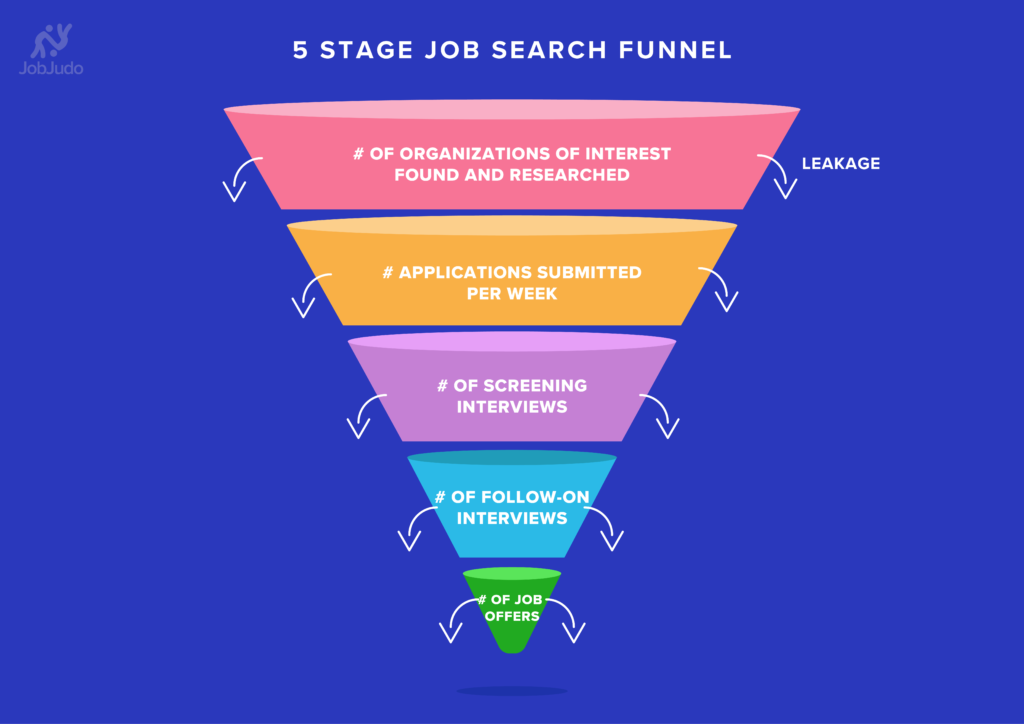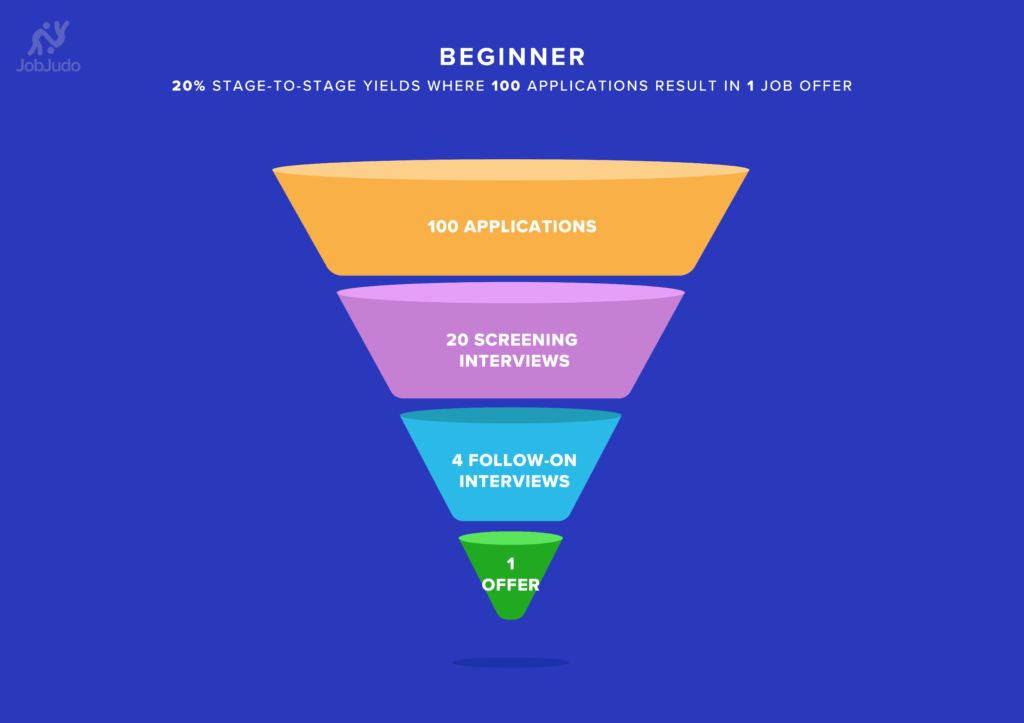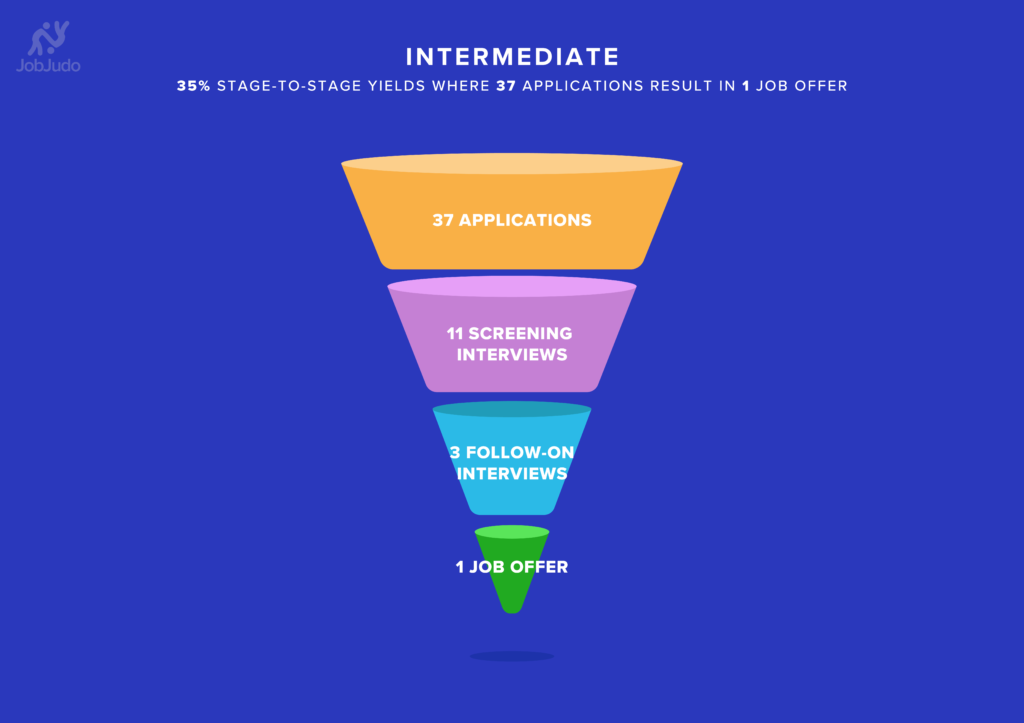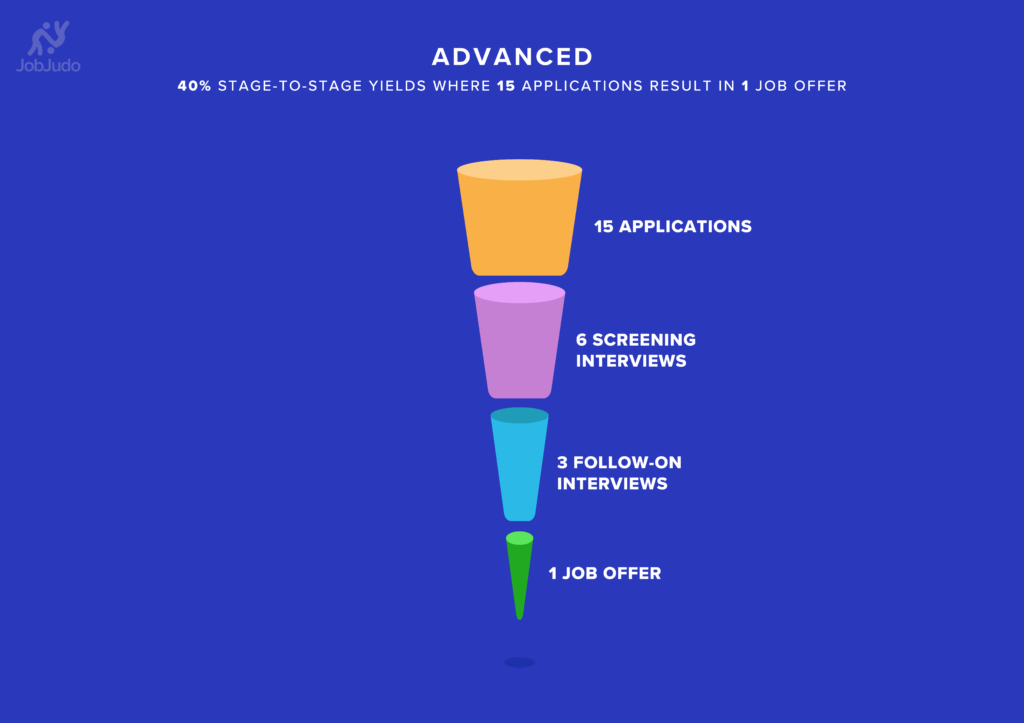Backstory
Judo. After being mugged one night at a train station at the age of sixteen, I decided to enroll in a self-defense judo course.
In the first phase, Ukemi or ‘break falls,’ we were supposed to learn how to be thrown and to absorb falls without injuring ourselves. My partner was a more experienced 15-year-old girl. She might have weighed 95 pounds, maybe less. I was a head taller and weighed a lot more.
She skillfully tugged me forward and off balance, pivoted, dropped her hip under mine, and pulled me over her back. I don’t remember hitting the mat. I do remember coming to with several concerned faces looking down at me and having a throbbing headache.
Small advantages in her skill levels over mine had just produced outsized results!
Over time, I learned that the same is true for job search skills where trained competitors with small advantages regularly outperform those who are untrained.
The JobJudo Program trains Early-in-Career Applicants (“E-Capps” pronounced “ee-caps”) aged 16 – 26 to target, hunt for, and win multiple offers for:
- Internships, apprenticeships, and co-ops,
- Entry level jobs, and
- The next two follow-on positions.
B2B Sales. JobJudo is based on the principles of complex, consultative, business-to-business sales where:
- Complex = There are two or more decision makers such as screening recruiters, recruiters, and hiring managers;
- Consultative = Applicants must ask questions to find out what hiring managers want and then give it to them, if they can;
- Business-to-Business (B2B) = Applicants and organizations are both economic entities with long term value propositions and relationships;
- Sales = Applicants must seek out and research job opportunities and approach potential employers via online applications or direct approaches.

Job Search Funnel. The job search process is modeled after B2B Sales Funnels and consists of roughly five stages with percentage yields (outcomes) from stage to stage:
- Target identification and research
- # Direct approaches and applications
- # Screening interviews and assessments
- # Follow-on interviews and case studies
- # Job offers and evaluations



Small Advantages. As in Judo matches, small advantages in skill levels at each stage produce significant increases in the number of job offers.
For example, a Search Funnel with 20% stage-to-stage yields and 100 direct Approaches looks like this:
100 Approaches → 20 Screening Interviews → 4 Follow-on Interviews → about 1 Job offer.
However, small improvements skill levels that produce stage-to-stage yields of 30% look like this:
100 Approaches → 30 Screening Interviews → 9 Follow-on Interviews → about 3 Job Offers.
Just a 10% improvement in skill levels can increase the number of Job Offers by 3 times!
Origins. JobJudo was developed and proofed at two student clubs over eight years at the University of Arizona.
In subsequent years graduates detailed what they did to win promotions or to move into new jobs and companies. Their experiences and ‘scar tissue’ have been added to JobJudo’s body of knowledge.
The JobJudo Book. The vision is to publish a self-help book narrated, in part, by graduates who, after scores of attempts, successfully leveraged JobJudo’s tactics into multiple job offers.
Educational Levels. JobJudo works for E-Capps with high school, associate’s, bachelor’s, master’s, and PhD degrees, as long as the written job description requires no more than the highest degree required. In many cases no degree may be required at all.